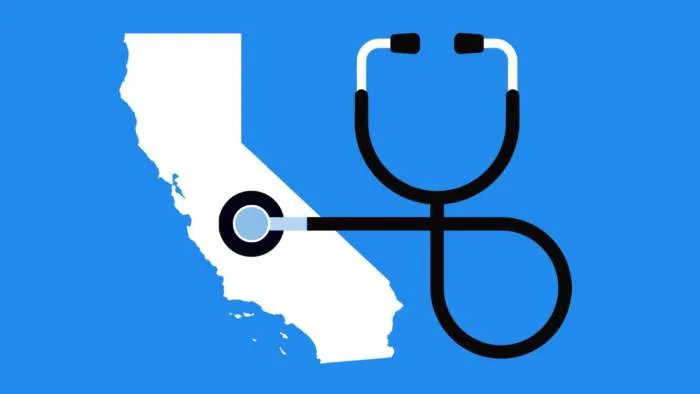
A New Era in 2024: Healthcare for Undocumented Immigrants in California
California, a trailblazer in progressive policies, has achieved another historic first: it is now the first state in the United States to extend health insurance to all undocumented immigrants. This groundbreaking policy came into effect on January 1, 2024, marking a significant milestone in the state’s commitment to inclusive healthcare.
Overview of the New Policy
The cornerstone of this policy is the extension of Medi-Cal, California’s version of the federal Medicaid program, to all undocumented immigrants. This is a monumental shift, particularly for the group aged 26 to 49 – a demographic that, until now, has remained outside the coverage net of Medi-Cal. This policy change represents the culmination of a progressive expansion of healthcare access for undocumented immigrants in California.
The journey towards more inclusive healthcare began under Governor Jerry Brown. In 2015, a significant step was taken when Medi-Cal was expanded to cover undocumented children. This was followed by further expansions under Governor Gavin Newsom. In 2019, young adults up to the age of 25 were included, and later, the coverage was extended to those aged 50 and over. These steps laid the groundwork for the latest, and most comprehensive, expansion.
The Scope and Impact
The scope of this expansion is vast, potentially benefiting approximately 700,000 additional residents who previously had no access to full-scope Medi-Cal. This move by California not only addresses a significant coverage gap but also sends a powerful message about the state’s values. California State Sen. María Elena Durazo articulated this sentiment clearly, stating, “This historic investment speaks to California’s commitment to healthcare as a human right.” This policy is more than just a legislative change; it’s a reflection of California’s dedication to ensuring healthcare for all, irrespective of immigration status.
Economic Considerations
The expansion of healthcare to all undocumented immigrants is a significant financial undertaking for California. The state has earmarked $835.6 million for the fiscal year 2023-24, with a projected annual commitment of $2.6 billion thereafter. This substantial investment underscores the state’s determination to make healthcare accessible to all its residents, regardless of their immigration status.
Economically, this policy is a double-edged sword. On the one hand, it represents a significant upfront cost to the state’s budget. On the other hand, there are potential long-term benefits. Providing preventive care and regular medical services to undocumented immigrants could lead to overall reduced healthcare costs. This is due to the avoidance of more expensive emergency care that is often the only option for the uninsured. Moreover, healthier individuals can contribute more effectively to the economy, potentially offsetting some of the initial expenses through increased productivity and reduced absenteeism.
Challenges and Criticisms
However, this policy has not been without its detractors. The California Senate Republican Caucus has raised concerns about the additional strain this expansion might place on Medi-Cal and the state’s healthcare providers. With Medi-Cal already serving a significant portion of California’s population, adding nearly three-quarters of a million people raises questions about the system’s capacity and the quality of care that can be maintained.
Balancing this perspective, studies indicate that undocumented immigrants typically use fewer healthcare resources compared to non-immigrants. This is partly due to their younger average age and lower rates of chronic conditions. This data suggests that the actual impact on healthcare resources may not be as significant as anticipated.
Healthcare Access and Barriers
The policy also addresses a stark disparity in healthcare coverage. Approximately 50% of undocumented adults in the United States are uninsured, compared to just 8% of U.S.-born citizens. This gap is largely attributed to the lack of access to employer-provided healthcare and eligibility restrictions for federal healthcare programs.
Even among those eligible for coverage, barriers remain. Many undocumented immigrants face challenges such as confusion over their eligibility, language barriers, and fear of accessing services due to their immigration status. These factors often prevent them from seeking necessary medical care, leading to worse health outcomes and increased reliance on emergency services.

Community Voices
The voices of those at the heart of this policy change are pivotal in understanding its impact. Dr. Maria Lopez, a primary care physician in California, shared, “This policy is a game-changer. We’ve seen numerous cases where delayed care for undocumented patients led to severe complications. Now, we can provide proactive care.” Her sentiment is echoed by Carlos Mendez, an immigrant advocate, who stated, “Healthcare access can significantly reduce the daily stress and fear within the undocumented community.”
A case in point is Ana Rodriguez, a 35-year-old undocumented immigrant in Fresno CA, who for years avoided seeking medical care due to cost fears. “Now, I can finally get the care I need without worrying about a financial burden that I can’t afford,” she expressed, reflecting the relief felt by many.
Comparison with Other States or Countries
California’s approach stands out when compared to other states in the U.S. and policies abroad. Unlike states like Texas, where undocumented immigrants have limited access to healthcare, California has taken a more inclusive approach. Internationally, countries like Canada and certain European nations have long recognized healthcare as a universal right, regardless of immigration status. From these models, California can learn about effective implementation strategies and the long-term benefits of inclusive healthcare policies.
Challenges and Criticisms
The implementation of this expansive policy is not without its challenges. The primary concern is the logistical aspect of integrating such a large number of new beneficiaries into the existing healthcare system without compromising the quality of care. Additionally, there is apprehension about the potential for increased wait times and resource strain in medical facilities.
Critics, particularly from the political spectrum, argue that the policy may encourage more illegal immigration and place an unsustainable financial burden on the state’s economy. They also express concerns about prioritizing undocumented immigrants over citizens in accessing healthcare resources.
Future Outlook
As California embarks on this unprecedented journey of providing healthcare to all undocumented immigrants, the long-term effects are likely to be multifaceted. In the healthcare sector, we may see a shift towards more preventive care and reduced reliance on emergency services, leading to overall better health outcomes and potentially lower healthcare costs in the long run.
Politically and socially, this policy could set a precedent for other states, igniting a national conversation about the role of healthcare in society and the rights of undocumented immigrants. Future developments may include policies focusing on more integrated care and perhaps even collaborations with private healthcare providers to expand coverage and accessibility.
The success of this policy could also pave the way for related reforms, such as enhanced language and cultural competency training for healthcare providers, and further initiatives addressing social determinants of health in immigrant communities.
Conclusion
California’s policy to provide health insurance to all undocumented immigrants is a bold step towards redefining healthcare as a universal right. This policy, effective from January 1, 2024, not only extends Medi-Cal to approximately 700,000 additional residents aged 26 to 49 but also signals a significant shift in how healthcare is perceived and administered.
While there are substantial economic commitments and logistical challenges, the potential benefits — reduced emergency care costs, improved public health, and greater productivity — cannot be overlooked. Criticisms and concerns, primarily regarding resource allocation and system strain, are valid and require careful monitoring and adaptive management.
California’s approach, compared to other states and countries, highlights its role as a frontrunner in progressive health policy. The experiences and lessons from this policy can serve as valuable insights for other regions considering similar reforms.
In conclusion, this policy is more than just an expansion of a healthcare program; it’s a statement about values, a step towards equity, and a test of the state’s capacity for inclusive and sustainable healthcare. As we move forward, it will be essential to monitor the impacts, adapt as necessary, and continue the dialogue about the role of healthcare in society and the rights of all individuals, regardless of their immigration status.














































